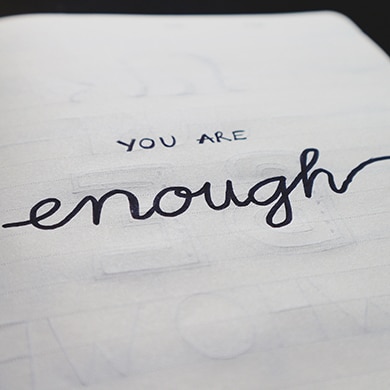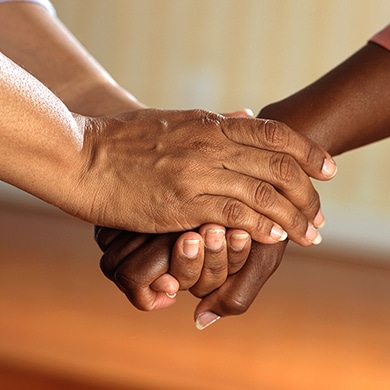

Are you happy with your life at the moment? We all go through periods of dissatisfaction and apathy, feeling like something just isn't quite right or struggling with a sense that something is missing. However, we can all too easily take our health and freedom for granted, sometimes missing the bigger picture. The truth is that we can all stand to learn a lot by considering the unique perspective of a person who has not much time left. This is especially moving when someone, like Holly Butcher, is so willing to share wisdom with the world.
We'll explore the story of Holly, a young woman whose life was tragically cut short by terminal illness. She left a letter full of advice and honesty, containing at least eight distinct messages that we can all benefit from. And as we work through them, we'll consider how you might best apply these lessons to your own life. Plus, let's acknowledge some of the challenges that often stand in our way.
Born in New South Wales in Australia, Holly Butcher looked to have a wonderful life ahead of her. However, aged just 27 years old, Holly lost her life to a rare type of bone cancer, Ewing's sarcoma. This type of cancer is especially prevalent in younger people. Until her diagnosis, Holly was extremely fit and had a passion for fitness and health. She represented her state in two separate sports, squash and hockey. It was a profound shock to discover that undiagnosed malignancy had been growing without her knowledge.
She first began to suspect something was wrong when she noticed a persistent knee pain that increased any time she exercised or drank. As time went on, the pain grew, and she went to her doctor for advice. After pressing for exploratory tests, she discovered that her cancer was at stage 4; impossible to cure, and likely to kill her within years. Before she died, Holly talked about how odd it was to come to terms with the idea of her life ending at such a young age. She shared her fantasies of growing old, and how she'd imagined being surrounded by children and grandchildren, simply assuming (as so many of us do) that this would be possible for her to achieve.
Ultimately, Holly Butcher decided to write a letter bursting with advice and expressing her deep feelings of loss and grief at the thought of losing her life. Her selfless, thoughtful legacy was to leave us all with actionable suggestions on how to get the most out of our own lives. She wanted to make sure that we were all aware of the perspective she had gained through her illness. Plus, Holly hoped that we would benefit from what she discovered about the meaning of life. Since her death, her words have resonated with people all across the world.
Holly's powerful letter has been shared on Facebook almost 250,000 times and has been covered in a wide range of national newspapers. As well as wanting to ensure others learned from her experience, she wanted to use the letter to instigate a more open conversation about death and dying. She felt that these were unhelpfully taboo subjects; since we all have to face our mortality, we can all benefit from tackling the topic of death with honesty and humility.
In her letter, she also deliberately stressed the importance of blood donations, without which she would not have been able to live for a full further year. A single donation can save up to three lives. The concrete impact blood donors had on Holly reminds us that donating blood is something that most of us can easily do in order to help others.
She prepared her letter in the final weeks of her life. It was ultimately released by her family on the day she passed away.
Let's go through the eight major lessons we can learn from Holly Butcher, and reflect on how we can begin to properly put them into practice in our everyday lives.
Firstly, it's vital that we don't take anything for granted. What we have today, we may continue to have for decades, or we may lose tomorrow. Be grateful for the things that make you happy! Really try to engage with activities and hobbies, rather than just expecting that you'll be able to do so another day.
In addition, remember we aren't always very good at predicting what our future path should look like. The unpredictability of life is part of its excitement, so do your best to tune into your intuitions and don't worry if you feel like you're deviating from that journey you previously assumed you “should” take.
Learning to fully inhabit the present allows us to connect with what we have right now, disconnecting us from ruminations about the past or worries about the future. There are all sorts of things we can do in order to better live in the moment. For example, we can practice mindfulness, incorporate grounding affirmations into our day, and learn how to refocus our energy when our mind begins to spiral into an unhelpful loop.
There's nothing certain in life, so wholeheartedly throw yourself into what's being offered today and do your best to enjoy the ride.
As Holly Butcher notes in her letter, we all too often spend our time complaining about little things in life. We allow small annoyances and minor inconveniences to drag us down and ruin our days. Plus, we pour energy and attention into our feelings of anger, indignance or embarrassment. This is a waste of your precious life! While you shouldn't try to deny or repress these feelings (which will cause them to pop up again at a later date), it's worth learning how to experience the fleeting negativity and then move on, moving through the bad feeling and onto something else.
A good way to differentiate between the trivial and the significant is to ask yourself if you'll care about today's annoyance in a day, a week, a month and a year. If you won't even care within the week, the chances are that you should just let this one go and not spend any more time on it. Further, as Holly notes, it can be extremely helpful to think about someone who is really facing a major problem. This instantly shifts your perspective and allows you to be grateful that you even have the privilege to complain about the little things.
We're constantly seeing advice about practicing self-care. However, the importance of this really hits home when you hear it discussed by someone in Holly's heartbreaking position. Although she invested a lot in physical health and well-being, she was quick to point out that mental and emotional health is just as valuable (if not more so). In addition, nurturing your spirituality is key as well. Think about how you need to do this, and try to draw up a plan to ensure you get the time.

On the topic of pursuing your well-being, she has a few useful pieces of concrete advice to give.
Firstly, try not to take projected images of perfection (e.g. on social media) too seriously. If following someone online makes you feel bad about yourself then strongly consider just cutting that person out of your news feed.
Meanwhile, if a friendship has this impact on you too, consider the role this person is playing in your life and whether their negative influence is undermining you. It may feel ruthless to cut out a former friend, but you only get one life and you need to surround yourself with people who build you up, support you and stay true to you. If you are unsure how to identify these toxic friendships, give our full article, ‘8 Signs Of A Toxic Friendship That You Need To Let Go Of Now‘, a read.
One of the most interesting things that Holly notes in her letter is that we genuinely get a deeper sense of satisfaction from helping others than we do from simply doing things that are for ourselves. On reflection, she wished she had spent more of her time giving, and she felt she had learned a lot from being the recipient of kindness bestowed on her by others. Thinking about the gratitude she felt, she encouraged others to give in the same way.
There are lots of ways to give to the world around you. Of course, there's the traditional route of donating money to charity, but if funds are tight you may find it easier to do some volunteer work.
Meanwhile, your good deeds don't only have to be directed at people who are dramatically less fortunate than yourself. Think of ways you can give to the people you love, too, and look out for opportunities to make life easier for them. Sometimes, this will just involve doing a chore for someone, offering to babysit or simply providing a listening ear.
Finally, look for random opportunities to be kind to strangers to brighten their days and make the world seem like a bright place for them to be.
We all know someone who is late for everything, and who shrugs this off as simply being part of who they are. Perhaps you are even that person yourself, at least some of the time. This can feel like a minor inconvenience at the time, but Holly Butcher's letter encourages us to take a more critical eye to this sort of behavior. She advises that we put the effort into being on time, even if it means having to make a plan in advance, and to remember that keeping people waiting is actually fundamentally disrespectful to the value of their precious time.
If this is difficult for you, it's worth asking yourself why this is the case. Are you putting things off because you don't want to do them, or are you self-sabotaging? Sometimes, it's mere thoughtlessness that's behind chronic lateness; a lack of awareness of the knock-on impact that this lack of consideration can have.
Regardless of why you're late, if you take an honest look at yourself then you can likely predict how much time you really need to have in order to get ready to go out. Budget this time into your schedule, and be on time next time!
As you may have read, studies on the regrets of the dying all too often stress remorse felt regarding a poor work-life balance. We often fall into patterns of chronic over-working, rationalizing that we need to pour all our energy into work in order to ensure that we make enough money (or in order to boost our self-worth). It is much wiser to take a more moderate attitude to work, using it to facilitate other life goals rather than making it the focus of all life. If you're feeling burnt out, that's a clue that you need to find a way to reduce your current workload before it compromises your mental and physical health.
Of course, it's easier to get your work-life balance right if you happen to work in a career that you find genuinely satisfying, and which complements the majority of your overall values and goals. If this isn't the case for you right now, spend some time honestly thinking about what life would have to look like in order for you to feel passionate about your work. As Holly stresses, life is far too short to waste time on things we don't enjoy and that drag us down.
To return to the theme of taking life for granted, Holly Butcher's letter makes it all too clear that we often fail to properly appreciate our loved ones until it is too late. We become used to their presence, finding it comforting but never really thinking too hard about what we would do if it was no longer there. Don't wait until something catastrophic happens; tune into your feelings now, and express them to the people you care about every day.

This advice applies not only to your partners and children but also to your parents, siblings, and friends. As well as making them feel wonderful, being candid about how much you love them will minimize the chances of regretting your lack of verbalized affection at some point in the future.
If you struggle to share your emotions, remember that the simplest expression is often the best. Just saying “I love you” can be incredibly powerful, as can statements like “I appreciate you” and “You mean the world to me”.
Meanwhile, you can also show love just by remembering important dates, being kind, listening carefully and being consistently respectful. (You can find more acts of kindness examples and tips in our full article “20 Acts Of Kindness That You Can Do For Loved One's Today“.) Expressing your love isn't just about what you say – it's just as much about what you do.
Finally, and perhaps most importantly of all, Holly Butcher wanted to leave us all with the awareness that we have more power than we know. If there's something in your life that isn't making you happy, you can change it. Yes, it's frightening to take huge steps to transform a part of you or an aspect of your everyday existence, but it's worth it to try.
Whether you're unhappy in a relationship, bored at work, hate where you live or don't feel you're being authentic with others, let today be the first day that you begin to do things differently. Even if you take a single step, it can be the first of many that will set you on an entirely different road to a much better future.
As Holly puts it, you have limited time on earth; you should use your time to create joy and satisfaction rather than wallowing in misery. Think about what makes you smile, what makes you feel excited to be alive, and focus your days on doing as much of this as possible. Find people who think as you do, commit 100% to the things you love, and remember that every breath you take is a miracle and a gift.
